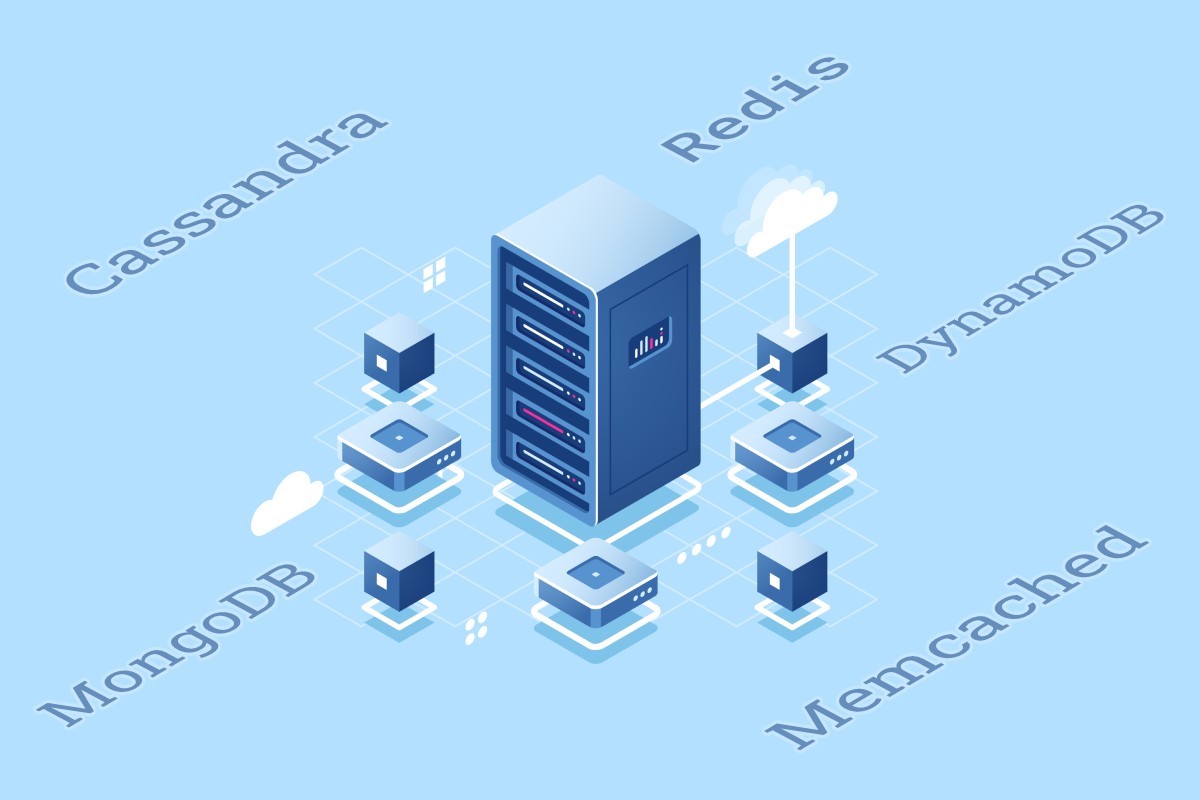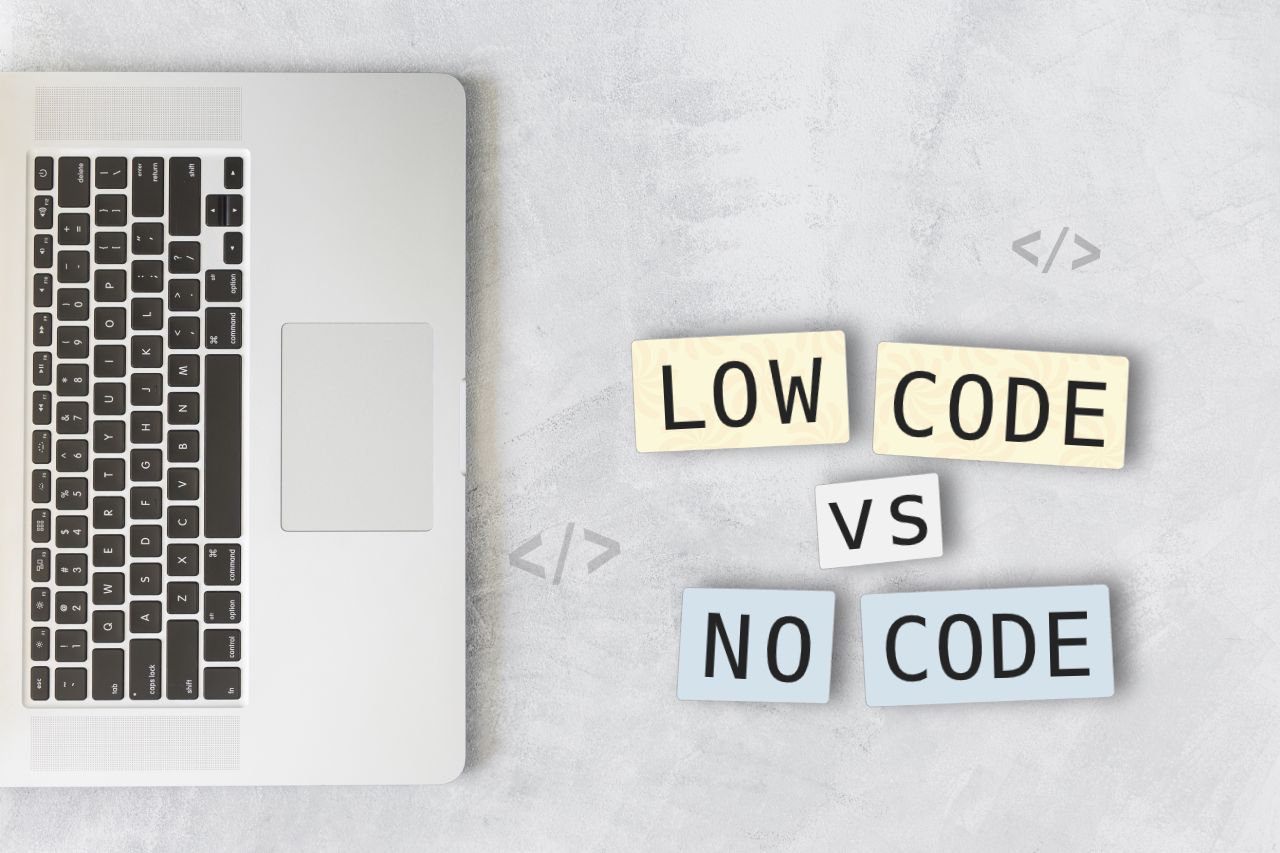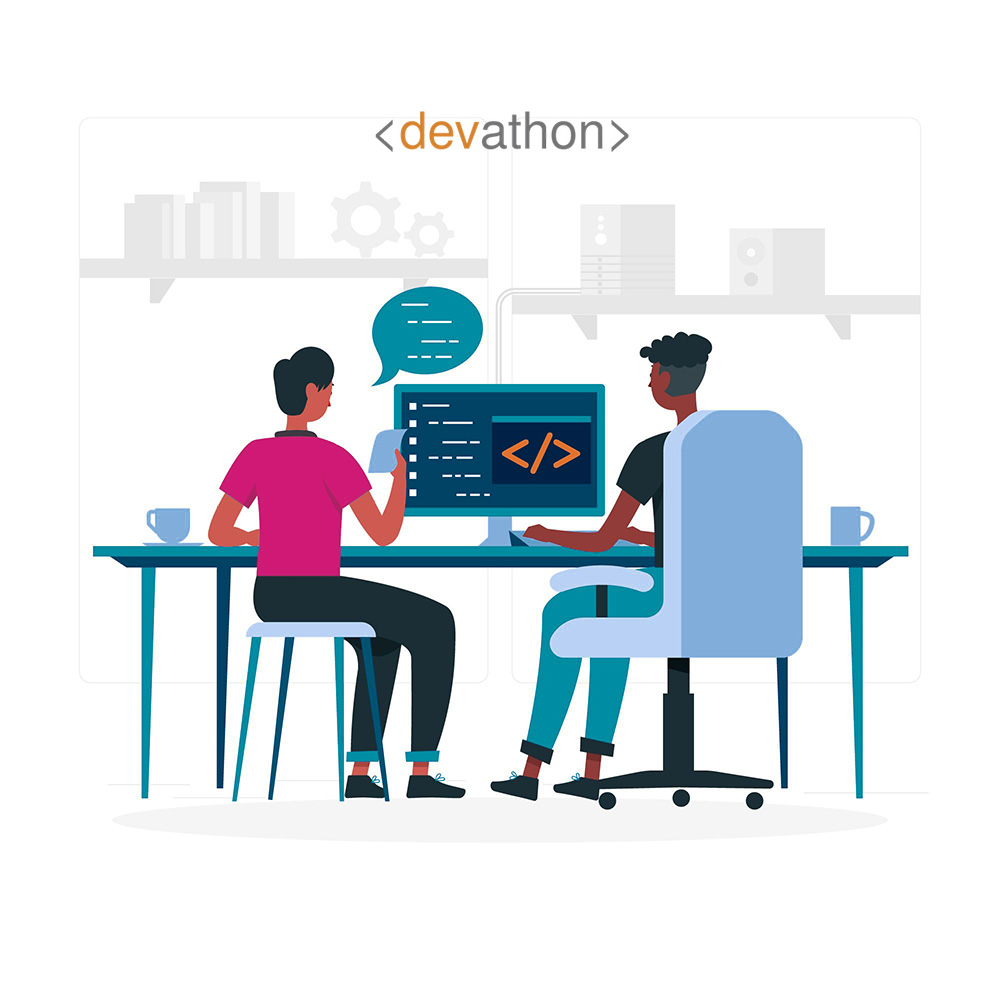Versatile, open and approximately 1.5 billion downloads a month and counting, Android is the world’s most popular mobile operating system. Its currently considered to be the best OS for building custom apps and has a market share that’s projected to grow to more than 87% in 2022. Not only does it dominate the smartphone operating systems market share, but Android also has eyes set on tablets, PCs, cars, set-top boxes, smartwatches, home appliances, and more.
For these reasons, and the fact that Android is highly customizable and behind it, a large global community forum, many developers now prefer to develop Android apps. Its growth has also led to a myriad of Android development tools that complicate the process of selecting the right android framework for app development. Yes, Android app developers often find themselves in a maze wondering which Android platform is best for them.
To help you select the right framework for your projects, we have compiled a comprehensive list that discusses the top 10 best Android frameworks that you can consider for app development in 2021 and beyond.
List of Best Android Frameworks for App Development in 2021
1. Ionic Android Framework
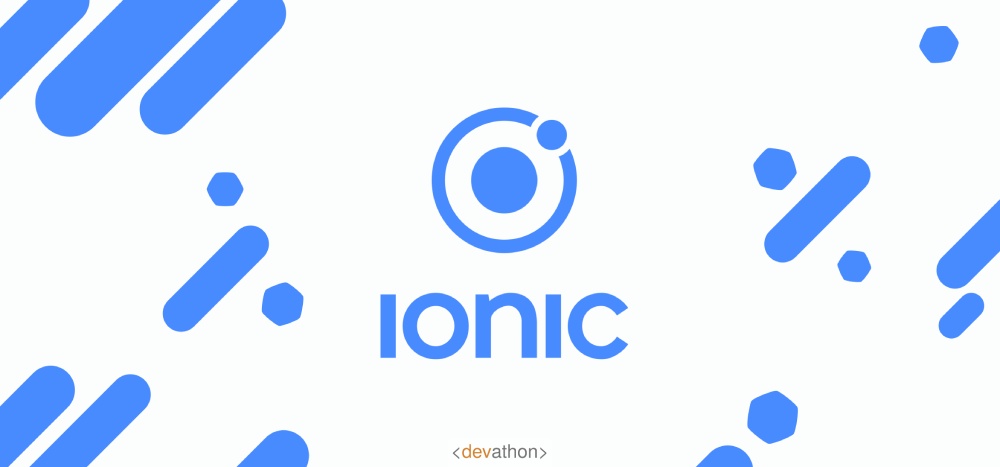
What is Ionic Framework?
Founded in 2012, Ionic is considered one of the most popular cross-platform development frameworks. It is a free, open-source framework certified by MIT that allows developers to use modern web technologies including HTML5, CSS3, and JavaScript.
Who Should Use Ionic Development Framework?
The ionic development framework is specially designed for developers to build hybrid and interactive mobile apps. If you are familiar with web development, the structure of an Ionic app is thus straightforward. Its rich and complete set of elements, gestures, animations, and software tools enables you to develop high-quality mobile, desktop, and Progressive Web Apps from a single codebase.
The ionic framework also integrates easily with other libraries such as AngularJS and utilizes functionalities such as Bluetooth, Health kit, and fingerprint authentication making app development lightning-fast, easier, and accessible and more fun. What more, it hosts a simple Command Line Interface (CLI) to develop apps that offer amazing display performance using emulators, live reload, and logging. Ionic also utilizes Cordova plugins and helps developers to access different framework components including camera, GPS, etc. in a super easy manner.
Which Businesses Use the Ionic Framework?
Ionic is used by start-ups and web development companies across the globe. So far it has already been used by 4 to 5 million app developers who have used it to power more than 4 million Ionic mobile, desktop, and web apps for fast-growing startup companies, travel agencies, restaurants, pharmaceuticals, and more.
USP of Ionic
The most developer-friendly android development platform for building cross-platform apps with one codebase for any device.
Ionic Features
| Release Date | 2013 |
| License | Open-source, MIT License |
| Languages | HTML5, CSS, JavaScript |
| Native API Access | Native plugin library, using Cordova and Capacitor |
| Deployment Options | Mobile, Web, Desktop, PWA |
| UI Elements | Standards-based and rich UI components |
| MVC Architecture | AngularJS |
| Development Interface | Simple CLI |
| User base | 5M+ Developers |
| Support Forums | Ionic support forum, Active StackOverflow community, Ionic Slack |
2. React Native Android Framework
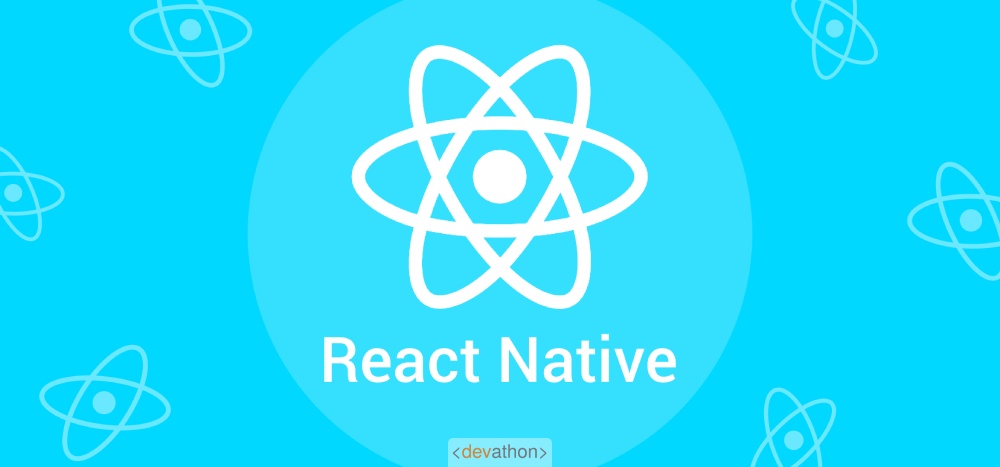
What is React Native?
React Native was voted as the 8th most loved cross-platform application development framework garnering more than 60% of votes as well as the 3rd most wanted framework in a recent survey comprising more than 90,000 developers. It’s also one of the fastest growing open source platforms currently boasting about 68,690 stars on Github.
The platform started out as an inside hackathon project at Facebook back in 2013. In 2015, it was released as an open source cross platform development framework. It allows developers to leverage React, a flexible JavaScript library to build apps for both Android and iOS. Since its developed by Facebook, it is regarded as one of the best open source software for mobile development.
Who Should Use React Native Development Framework?
Many developers across the globe use React Native and have reported how it makes customized app development much easier and faster. It uses native platform-specific built-in interface components and APIs that give mobile apps a natural look and feel as well as great performance. As such, it allows users to develop mobile apps that are indistinguishable from native applications using Swift, or Objective C, and Java.
On top of that, React Native effectively solves some of the vital issues that developers face such as Iteration period, Codebase differences, Imperative Programming, while simplifying customized code reusability and community-driven technology, where developers can freely contribute to current framework.
Which Businesses Use the React Native Framework?
Over the years, React Native has gained a significant following and is used in thousands of apps by many companies including Facebook, Instagram, Tesla, Intuit, Bloomberg, Uber, Yahoo, Walmart, and more.
USP of React Native
Popular for native-like and elegant user interfaces access across platforms. Helps developers to significantly reduce development time and costs.
React Native Features
| Release Date | 2015 |
| License | Open Source, MIT license |
| Languages | React and JavaScript |
| Native API Access | Javascript, Third-party Libraries |
| Deployment Options | Mobile, Web, UWP |
| UI Elements | Native Widget |
| MVC Architecture | Flux and Redux |
| Development Interface | React Native CLI |
| User base | 42% of software developers use React Native |
| Support Forums | GitHub StackOverflow Dev Community |
3. Flutter Android Framework
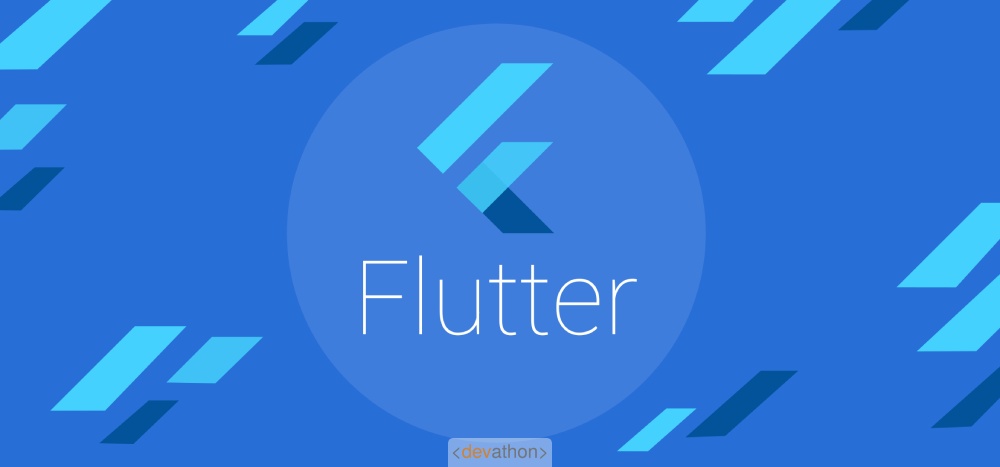
What is Flutter ?
Flutter is a new sheriff in town but has already made a name for itself in Google Ads. Its a free open-source mobile UI SDK framework built and developed by Google for building applications in a different approach compared to other Android app frameworks. It simplifies the multi-platform development process to craft excellent native interfaces on Android and iOS speedily. Flutter is written in the Dart language and works with existing code to help developers in mobile app development.
Who Should Use Flutter?
Developers across the globe who want to succeed in hybrid app development. It’s already used by numerous developers and organizations globally with many citing it as the best choice for hybrid app development. It uses a single codebase and its apps fully compile to native code by exploiting Google’s 2D rendering engine called Skia to develop visuals that resemble the Material Design and Cupertino style.
Flutter makes the cross-platform development process super-easy by allowing developers to test, perform UI, unit and functionality tests without identifying errors. Furthermore, the framework boasts a top-rated hot-reload functionality for continuous testing without having to restart applications. Over and above, Flutter has been found to hold plenty of benefits such as a screen reader, fast development, quick rendering and themes for Android and iOS among many more.
Which Businesses Use the Flutter Framework?
Flutter app development has been among the growing trends with companies like Alibaba, Google, CapitalOne, Tencent, and eBay using the framework to develop mobile applications.
USP of Flutter
Possesses the ability to develop fast,beautiful,expressive and high-quality native compiled applications on iOS and Android from a single codebase and in record time.
Flutter Features
| Release Date | May 2017 |
| License | Open-source, New BSD License |
| Languages | Dart, C, C++ |
| Native API Access | Device API |
| Deployment Options | Mobile, Web, Desktop, PWA |
| UI Elements | Rich UI rendering components, widgets for Material Design and Cupertino |
| MVC Architecture | Skia |
| Development Interface | Strong CLI tools |
| User base | 30% of developers use Flutter |
| Support Forums | GitHub, Slack |
4. Native Android Framework
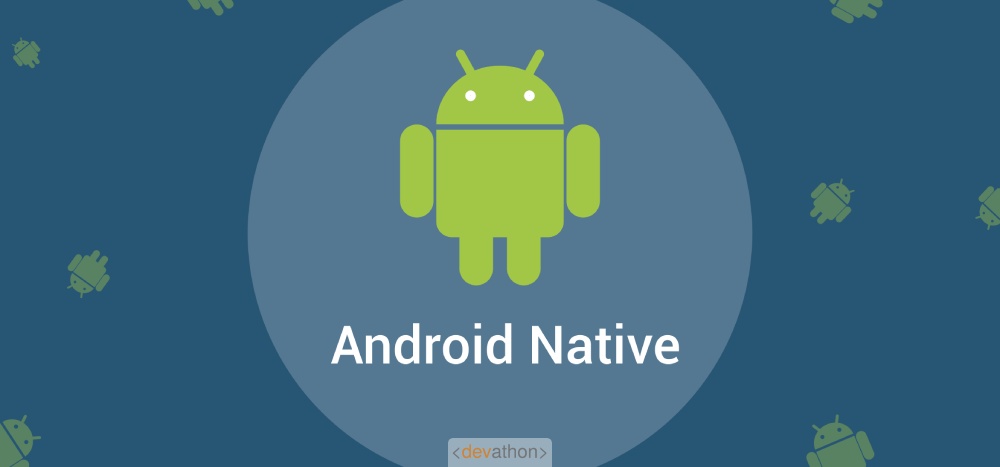
What is Native Android Framework?
Native Android development platform like the many others we have already discussed also stars among some of the world’s most popular mobile development frameworks. The SDK provides developers with API libraries and developer tools necessary to build, test, and debug brilliant apps for Android Platform.
Who Should Use Native Android Platform?
Developers that need to implement parts of their applications in native code, using C and C++ because they will be able to access some of these native libraries directly from their native code. The Native Android Game SDK provides game developers an incredible reach with more than 2.5 billion monthly active devices Android Platform
Which Businesses Use the Native Android Framework?
Google, Slack and Instacart are some of the popular companies that use native Android SDK.
USP of Native Android Framework
Native Android Framework provides a rich application framework that provides developers with the fastest tools to build innovative apps and games for mobile Android devices
Native Android Framework Features
| Release Date | October 2009 |
| License | Open Source |
| Languages | Java |
| Native API Access | Java framework APIs |
| Deployment Options | Mobile |
| UI Elements | Beautiful and intuitive native UIs |
| MVC Architecture | Android development MVC |
| Development Interface | CLI, Jetpacks, |
| User base | 5.9M developers |
| Support Forums | Android community Stackoverflow |
5. Xamarin Android Framework
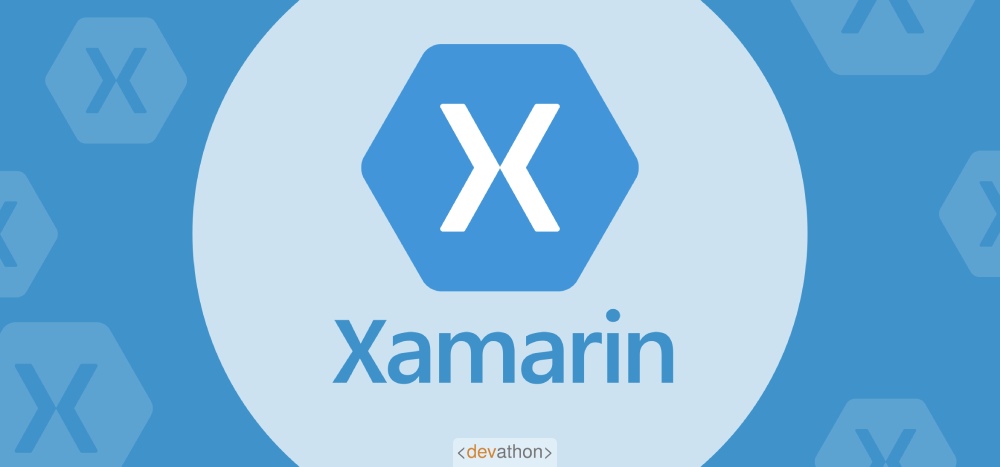
What is Xamarin Framework?
Xamarin is yet another a must-try mobile app development framework for developers. It is an open-source platform for building modern and performant applications for iOS, Android, and Windows with .NET. In the survey mentioned above with React Native, Xamarin was the 10th most popular cross-platform application development framework and the 15th most loved framework. Surprisingly unlike React Native, developers don’t dread it as much.
Xamarin features a friendly development environment with an abstraction layer that manages communication of shared code with underlying platform code. Xamarin.Forms allows you to build native apps, with shared UI code written in C# or XAML. Consequently, it allows developers to write all of their business logic in a single language while achieving native performance, look, and feel on each platform.
Who Should Use Xamarin Development Framework?
Xamarin is for those developers who want to share code, and test business logic across platforms as well as write cross-platform applications in C# with Visual Studio.
Which Businesses Use the Xamarin Framework?
Xamarin is loved by developers and trusted by the enterprise. Businesses worldwide, spanning all industries, use Xamarin and .NET to build performant native mobile apps
USP of Xamarin
Xamarin is a favourite Android development framework for developers and business because it’s free, cross-platform and open source platform for building Android and iOS apps with .NET and C#.
Xamarin Features
| Release Date | 2011 by Microsoft |
| License | Open-source, MIT License |
| Languages | HTML5, CSS, JavaScript |
| Native API Access | .NET |
| Deployment Options | Mobile, Web, Desktop, PWA |
| UI Elements | Standards-based and rich UI components |
| MVC Architecture | Model-View-ViewModel (MVVM) |
| Development Interface | Xamarin Forms, Android Designer, Visual Studio |
| User base | 1.5+ million users worldwide, over 60,000 contributors from more than 3,700 companies |
| Support Forums | Stackoverflow, Xamarin Community Forums |
6. NativeScript Android Framework
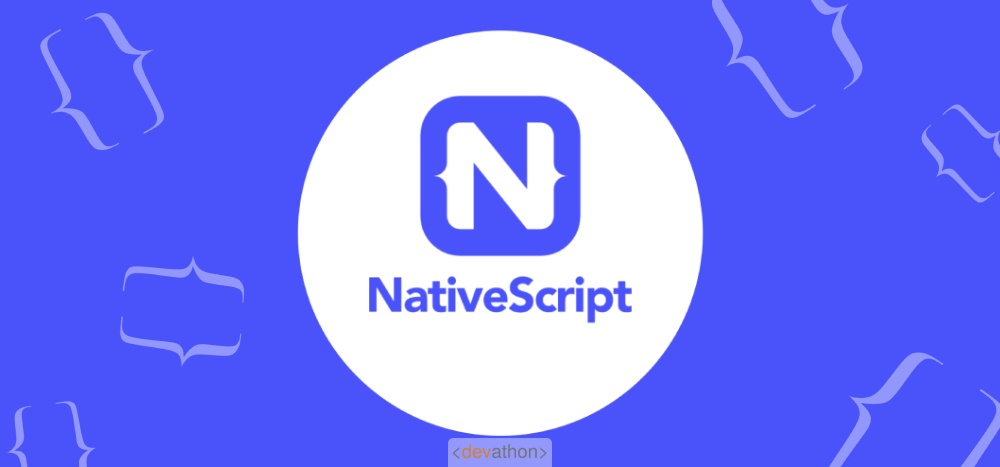
What is NativeScript SDK?
If you want to accelerate your mobile app development, NativeScript SDK is another great choice for app development framework that’s listed among the best hybrid app framework. Backed by a Bulgarian software company, Telerik and completely free, it provides app developers with an open source framework for building truly native mobile apps with Angular, Vue.js, TypeScript, or JavaScript while sharing the application code across platforms.
Who Should Use NativeScript?
For developers that want app development for multiple platforms in little time and less cost, NativeScript is a perfect choice. It works differently than Cordova, Ionic, PhoneGap, Xamarin and React Native. The platform focuses on native UX which is useful but becomes a Swiss army knife when integrated with cross-platform code sharing for iOS and Android. With it you have 100% direct access to all iOS and Android APIs and have a chance to easily reuse CocoaPods and Android SDKs, find free templates, plugins, and app samples
Which Businesses Use NativeScript Framework?
NativeScript has its share of fans in the business world including Symantec, Xerox, Dell, Microsoft as well as thousands of developers who use it to build cross-platform mobile applications mostly from B2B tech companies.
USP of NativeScript
Provides developers with everything they need to build amazing native mobile apps with JavaScript, TypeScript, Angular, or Vue.js empowering them to leverage their skill sets to build native experiences on mobile.
NativeScript Features
| Release Date | March 2015 |
| License | Apache 2, Open Source |
| Languages | JavaScript, CSS, Angular |
| Native API Access | Javascript API |
| Deployment Options | Mobile, Web, Desktop, PWA |
| UI Elements | NativeScript UI |
| MVC Architecture | Composable MVVM |
| Development Interface | CLI, VS Code, Sidekicks, Plugins |
| User base | User base increased by 80%, 2.1M+ developers, more than 300 plugins developed |
| Support Forums | Stack Overflow , Slack, Github |
7. JQuery Mobile Android Framework
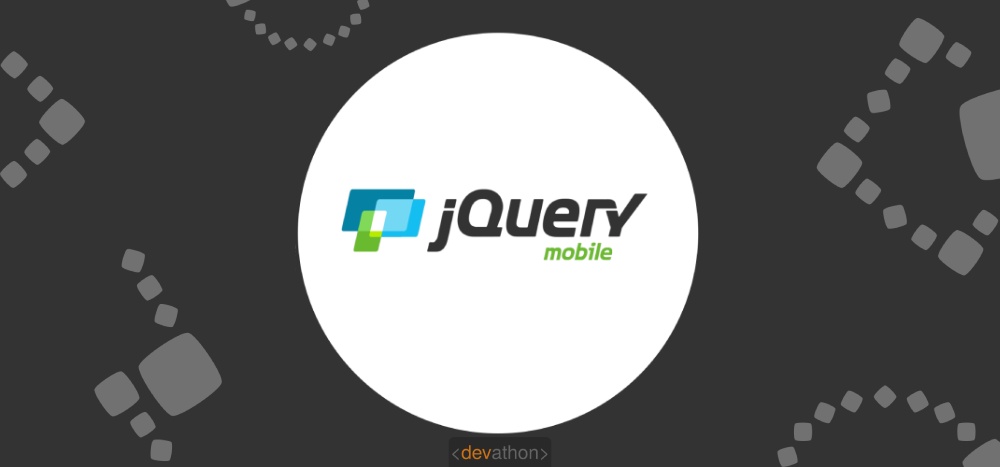
What is jQuery Mobile?
If you want to awe your mobile audience with captivating applications, jQuery Mobile has got you covered. As a HTML5-based cross-platform development framework, jQuery Mobile provides developers with one of the easiest ways to develop both mobile as well as web applications.
The Query Mobile framework takes the “write less, do more” chant to the next level. What this means is that you can write your code once, and it will execute it on practically any of the required platforms even if you are building apps on Windows Phones, Symbian and Blackberry.
Who Should Use jQuery Mobile?
Any mobile developer that wants to build highly branded and highly responsive applications that will work on most trendy smartphones and tablets along with the desktop platforms.
The jQuery Mobile builder offers an added support by including a custom JavaScript file, and structure-only style sheets for creation usage. It also comes with different plugins such as Pop-Up Boxes, Image Slider, Content-Slider, and more which make the web pages simpler, user-friendly, and more interactive. To make it easy for developers, it features a ThemeRoller for easy to drag and drop functionality. It is also compatible with other mobile app frameworks and platforms such as Worklight, PhoneGap and boasts a huge community base.
Which Businesses Use jQuery Mobile?
Approximately 1146 companies including Bukalapak,Yext, Accenture, Qlik, Cyta and more supposedly use jQuery Mobile in their tech stacks.
USP of jQuery Mobile
jQuery Mobile allows “write once, run anywhere” and is pretty easy to create simple apps on it.
jQuery Mobile Features
| Release Date | October 2010 |
| License | Dual-licensed (MIT and GPL) |
| Languages | JavaScript, HTML, CSS |
| Native API Access | jQuery and jQuery UI |
| Deployment Options | Mobile, Web |
| UI Elements | jQuery UI provides touch-friendly form Inputs and UI Widgets |
| MVC Architecture | ASP.NET |
| Development Interface | Corporate Design, Widgets |
| User base | Usage and market share stats |
| Support Forums | jQuery Support Forum, jQuery Meetups |
8. Framework7 Android Framework

What is Framework7?
The newest in town, Framework7 is full-featured android development platform designed to help developers build Android, iOS, and Desktop apps. It is a free and open source mobile HTML framework and all you need to make it work is a simple HTML layout and associated framework’s CSS and JS files!
Who Should Use Framework7?
If you know HTML, CSS and a bit of JavaScript – you are very close to developing apps with Framework7. That said, developers who are familiar with the basics of HTML, CSS and JavaScript easily flow with Framework7. Framework7 is not compatible with all platforms but focuses more on iOS and Google Material design for optimum experience and simplicity.
Which Businesses Use Framework7?
Here’s a list of apps created with Framework7. Some of the businesses that use Framework7 include Ultracode Systems, Ristoranti.it, and more.
USP of Framework7
Framework7 is well-designed, completely free and open source, comes with a lot of ready-to-use UIs and can also be used as a prototyping tool.
Framework7 Features
| Release Date | August 2019 |
| License | Open-source, MIT License |
| Languages | JavaScript, Vue.js |
| Native API Access | Apache Cordova , Framework7 API, flexible router API |
| Deployment Options | Mobile, Web, Desktop, PWA |
| UI Elements | Ready-made stunning UI elements and Widgets |
| MVC Architecture | DOM7 |
| Development Interface | Framework7 CLI, Icons, Templates, Plugins, |
| User base | 15,000 stars on Github, Over 3000 apps developed |
| Support Forums | Github, Framework7 Forum |
9. Corona SDK Android Framework

What is Corona SDK Framework?
Corona SDK is the world’s most advanced 2D mobile development platform. The cross-platform development framework is free-to-use to create apps and games for mobile, desktop, and connected TV devices on a single code base. It leverages Lua scripting language, incorporates more than 1000 built-in APIs, a massive selection of plugins, and Corona Native extensions that help you make your app development a reality.
Lua is a powerful, lightweight, easy-to-learn multi-paradigm programming language with a focus on speed, portability, extensibility. Corona SDK is designed to enable super-fast development and allows you to work on a project and be able to publish it to several types of devices including phones, tablets, and TVs.
Who Uses Corona SDK?
Corona SDK is used extensively by game developers but is also one of the most popular general-purpose Android development frameworks.Whether you’re developing business apps or games, Corona SDK enables you to see changes instantly in the simulator and can iterate extremely quickly.
Furthermore, its app backend framework is based on Lua, which is easy to learn and fast to use. Its API selection makes it adding complex features easy, also their workflow lets you see any changes instantly. You’ll like its unmatched development and iteration speed. Even more good news is that it works on both Windows and Mac OS X, and has support real-time testing, native UI support, built-in engine, and advertising platform for developers. Amazing, right?
Which Businesses Use the Corona SDK?
Corona SDK has been used already to build Warcraft, Fun Run 2, Angry Birds, The Lost City, Hopiko, Civilization games as well as in and many other popular franchises.
USP of Corona SDK
Corona SDK is very approachable with plain syntax and therefore perfect for beginners. It’s the best platform for creating 3D and 2D games, enables 10x faster development and boasts multiple integration tools including TestFairy, Helpshift, Lua, MoonScript, and GameAnalytics being some of the most popular.
Corona SDK Features
| Release Date | December 2009 |
| License | Freeware |
| Languages | Lua |
| Native API Access | REST, Corona APIs |
| Deployment Options | Mobile, Web |
| UI Elements | UI Designer, UI frameworks and plugins |
| MVC Architecture | Game Controllers, MVVM |
| Development Interface | Interactive Corona Simulator, Drag and Drop GUI |
| User base | 500K + Developers |
| Support Forums | Corona Support Forums |
10. Appcelerator Titanium Android Framework
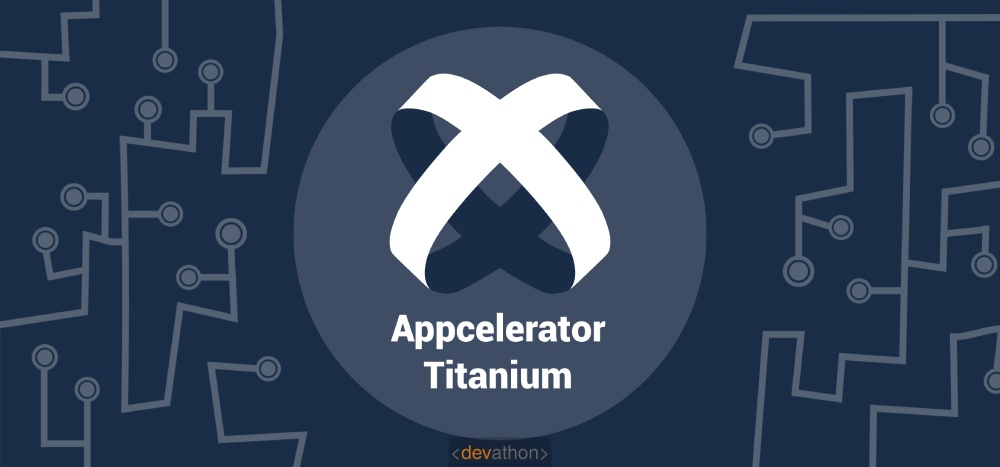
What is Appcelerator Titanium?
Lastly is the Appcelerator Titanium SDK which is also one of the most popular cross-platform mobile development solutions in use today. Like the rest we have looked at, it is a free and open source application development platform that allows developers to create native apps using web technologies such as HTML, JavaScript, and CSS without having to know Java or Objective-C. It’s easy to use and so widespread that 10% of mobile phones in the world are estimated to run apps made with Titanium. The platform uses JavaScript to create native code in order to improve performance.
Who Should Use Appcelerator Titanium?
With Titanium providing everything you need to create great, native mobile apps from a single JavaScript code base its an ideal choice for mobile developers. Using it gives the same performance as when applications are written using native APIs but the advantage is that it is super-fast. Furthermore, it provides access to native APIs for operating systems including Android, iOS, Universal Windows, HTML5, and Blackberry.
USP of Appcelerator Titanium
Being a cross-platform framework, Titanium enables you to write a single piece of code and use it to deploy to different operating systems with just a few tweaks to tailor a specific platform.
Appcelerator Titanium Features
| Release Date | June 2009 |
| License | Apache Public License v2 |
| Languages | JavaScript, HTML5, CSS |
| Native API Access | Javascript API |
| Deployment Options | Mobile, Web, Desktop |
| UI Elements | Standards-based and rich UI components |
| MVC Architecture | Titanium-based MVC |
| Development Interface | Titanium CLI |
| User base | 900k+ Developers |
| Support Forums | Stackoverflow, |
Conclusion
Thanks for reading! Development frameworks are the most important driving tools for building any successful mobile or web application. It must be remembered that every project or app has a different requirement and so the choice of the framework must be made carefully and after checking the other necessary factors.
That said, the best android development platform can greatly enhance your mobile development experience, so ensure you set some time to explore the frameworks we’ve shared. The year 2021 will see the emergence of many cross-platform frameworks but these will top the priority list of Android framework development. We hope that you find the kind of framework you need in them, and that your mobile development projects ends up being absolutely great!
Are you looking to get your App built? Contact us at hello@devathon.com or visit our website Devathon to find out how we can breathe life into your vision with beautiful designs, quality development, and continuous testing.


